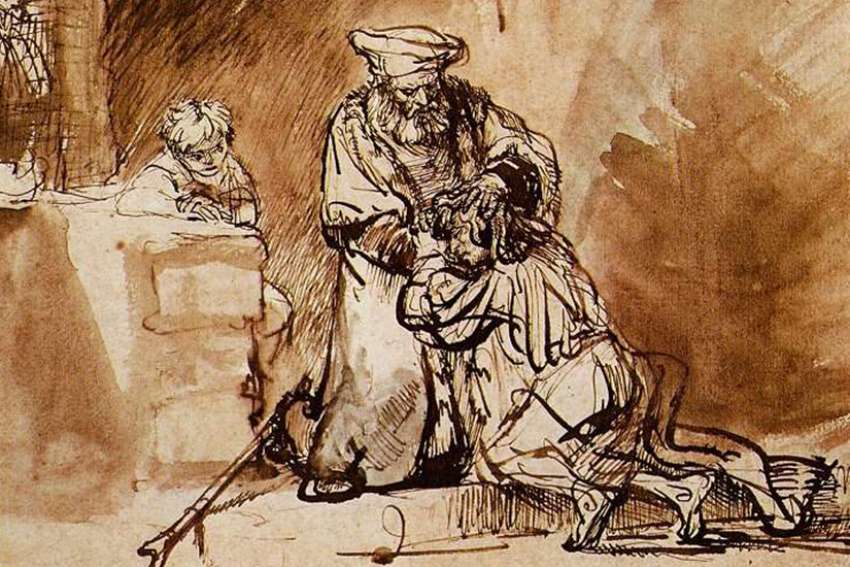Who among us hasn’t said that from time to time in regard to something we did or didn’t do, something we flubbed or messed up? The benefit of a mulligan or do-over would serve us well in those situations.
We see people getting second chances all the time. Even Donald Trump seems to have received exoneration from Christian followers for alleged sexual misconduct, marital infidelities and a lengthy list of other indiscretions.
“Evangelicals, conservatives, they gave him a mulligan,” Tony Perkins, president of the conservative Family Research Council, told a CNN host last week. “They let him have a do-over. They said we’ll start afresh with you and we’ll give you a second chance.”
It’s similar for a 29-year-old star hockey player from Nova Scotia, who has been given a second, third, fourth and more chances. Brad Marchand, a National Hockey League all-star winger with the Boston Bruins, received a sixth career suspension recently for a deliberate elbow to the head of New Jersey forward Marcus Johansson. Marchand is sitting out five games and forfeiting $373,475 in pay for his reckless action.
The smallish Marchand admits that, in the early part of his pro career, he embraced an agitator role as a player who liked to push close to the line of unacceptable conduct, often crossing it to gain stature. It helped him keep his job in the NHL as he developed as a gifted skater, proficient puck-handler and talented scorer.
Still, his history of controversy always shadowed his success.
Over the past eight seasons, he has been suspended six times for a total of 19 games and a forfeiture of more than $850,000 in salary. On three other occasions, he escaped suspension but incurred heavy fines.
“Early on, I was maybe trying to make a name for myself and the game was played a little different when I came in,” Marchand told media. “Maybe I could have changed a little quicker than I did, but I respect every player our there as much as guys on my team.”
Given opportunities to redeem himself, Marchand said he has been trying to play a more acceptable way over the past few years. Yet here he was again explaining that it was not his intent to injure Johansson, who left the game on Jan. 23 with a concussion.
“Hopefully, he has a full, healthy recovery,” Marchand said. “I’m just sorry that I let my teammates down. I know that. And I let my organization down, so I have to be better.”
When we are in the need of a mulligan, it’s because we too have let down our teammates — our family and friends — and our Catholic community. If Marchand let the Bruins’ coach and management down, then when we do something worthy of a do-over, we have especially let down our team manager, God.
That is especially true when an inappropriate or sinful action or inaction is a repeat of an indiscretion we’ve committed in the past. We do something wrong, pay the personal or spiritual price for it, seek forgiveness and then do the same thing over and maybe over again.
Jesus supported the mulligan concept in His parable about the prodigal son. Having squandered half his family fortune in a hedonistic and unscrupulous lifestyle, the son stumbled back to his father’s property scrounging for a second chance. He got it.
The clemency offered by the father to the prodigal son is a template for how we are expected to forgive one another and provide a second, third and fourth chance to the person next to us. When Peter asks Jesus how many times he ought to forgive his brother, he was told to forgive 70 times seven times, or, in other words, to provide unlimited forgiveness.
The Canadian Press recently posted a story of a doctor, father and marathon runner from Charlottetown who appeared to be a selfless caretaker. But Grant Matheson was hiding an opioid addiction that almost cost him his life, put his patients at risk and jeopardized his career.
In his book, Golden Boy, Matheson recounts a descent into addiction that began after a divorce when he was 30.
After countless unsuccessful attempts to stem the addiction and quit using, Matheson said he was caught by the College of Physician and Surgeons in 2005 and his medical licence was suspended.
Now 52, he said he has long since decided to hang up the stethoscope and hopes his memoirs will help reduce the stigma of addiction in the health-care community. He is is making the most of his mulligan.
No matter how much credence we lend to Marchand’s contrition, we would do well to follow his advice, learn from our mistakes and strive to be better.
Best efforts will not let our families, our team and our organization down.
(Campbell is a reporter at the Halifax Chronicle Herald.)


